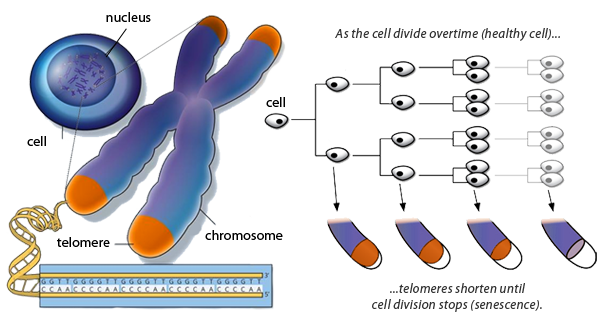Introduction
Wouldn’t it be great if we never had to age? Could you imagine taking a pill to stave off growing old, and all that comes with it? A new study is coming close to that. The authors claim to be able to kill some of the cells responsible for aging. By eliminating problem cells, at the end of their lifespan, they can stave off the negative effects of aging for a time. This kind of research is incredible as it could increase both lifespan and quality of life. Health care in particular needs these advancements as so many resources are spent fighting on an aging population (Video).
Cell lifespan
As we age, so do our cells. Eventually our cells lose functions and cause all manors of visible signs of aging. The bodily cells most prone to aging are those on the exterior of the body. Skin cells are constantly sloughed off and need to be replaced. The same is true for other parts of the body, such as the gastrointestinal tract. These environments are harsh on cells, so they are in constant need of replacement. Homeostasis is achieved by a few basal stem cells which constantly need to divide and replace these lost cells. Because all new cells stem from these basal cells, the new cells are only as good as the ones they come from.
Figure 1: telomere shortening
http://reflexions.ulg.ac.be/cms/c_353712/en/eliminating-cancer-cell-immortality?portal=j_55&printView=true
Senescence
Every time a cell divides, it must first fully reproduce its entire genome. At the ends of all chromosomes are telomeres, comprised of protecting regions of heterochromatin. Each cellular division through mitosis leads to the telomere’s being shortened. When there is little to no telomere left, the DNA is at risk of being damaged, and the cell may no longer divide. Essentially, this gives dividing cells an expiry date. However, much like anything left in a refrigerator, things can go bad if left to persist too long after this date. A buildup of spent cells leads to the visible signs of aging, and can even be a cause of more serious diseases. Senescence is characterized by three things for a cell: a stoppage of growth and division, a resistance to apoptosis, and a change in physiology. While replicative senescence is a form of failsafe for cells, it has the possibility of failing. If DNA becomes damaged, it can lead to cancer, because of the changes to a cell.
Apoptosis as a Treatment
Recently, there has been some research done on senescent cells because cancer research is a hot topic. Researchers want to know if that by killing these cells, they can ward off cancer and aging. Results in this field are proving promising so far, and have shown apoptosis to be a novel disposal system for senescent cell lines. There have been a few recent studies on this subject using mice. One such study used transgenic suicide genes to induce apoptosis in aged mouse cells (cells which were senescent). By doing so, the authors hoped it would have a profound effect on quality of life and prevalence of aged related illnesses. There results were consistent, and vascular function as well as frailty improved in the mice. Another similar study using small molecules found that chemicals could induce the same effects in mice again. This is a big step forward as it opens the door for research to move forward. The authors of the paper found their mice lived longer with few age related problems. Health was better in the heart, lungs, kidneys, and adipocytes. The hope is that this could be used to proactively help an aging population one day.
Figure 2: global median age
https://commons.wikimedia.org/wiki/File:Median_age.png
Implications
Every year, the United States, Canada and other countries worldwide spend billions of dollars on healthcare. Furthermore, with many countries experiencing aging populations, health care costs are expected to rise and hospitals to get more crowded. If this type of research pans out, it could revolutionize healthcare. Age related illnesses would be greatly reduced, and people might even be able to stay younger longer, although it might be wishful thinking. This is just something potentially useful, especially as problems like gradually age catch up to us.



Recent Comments